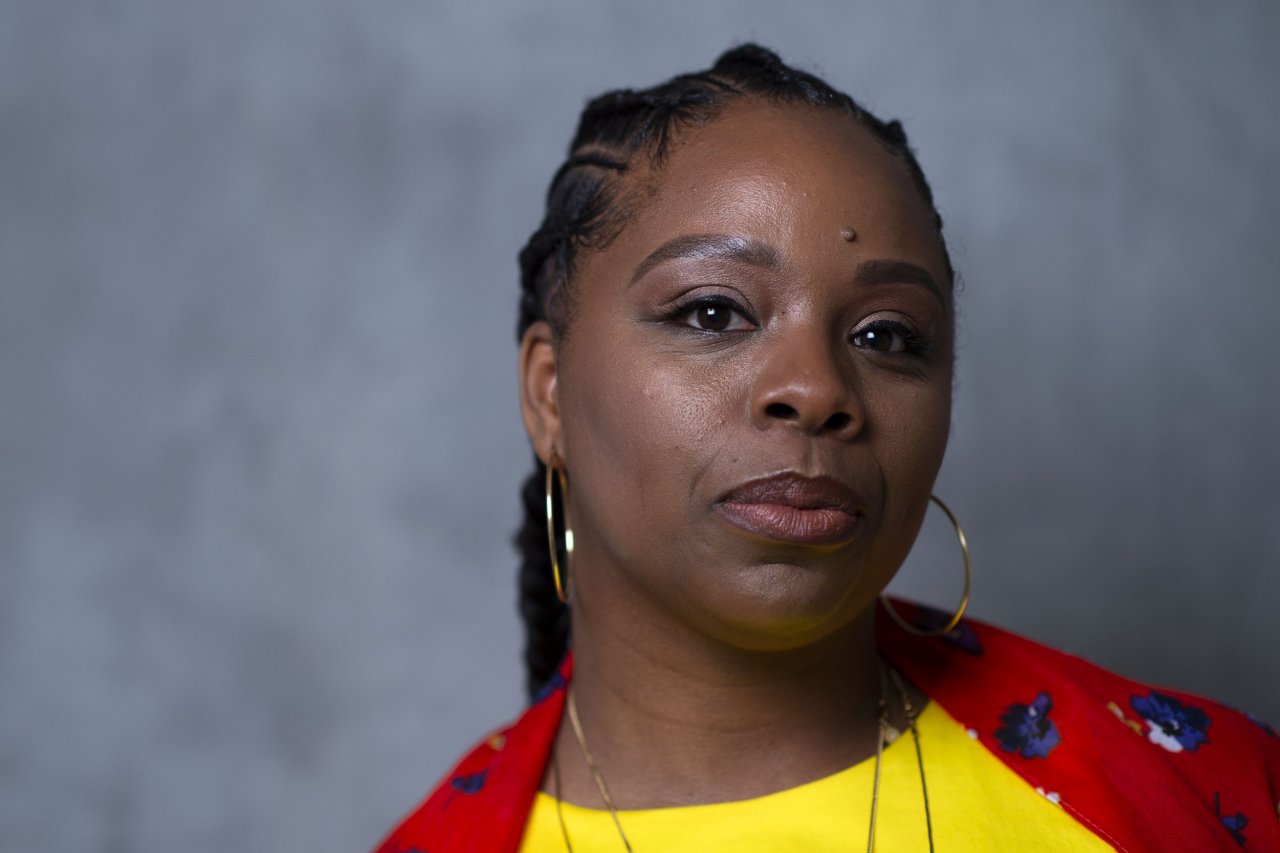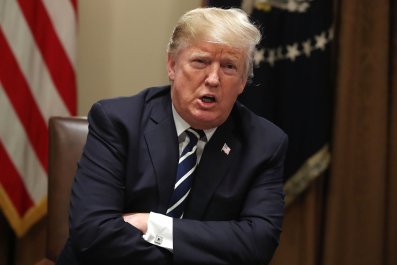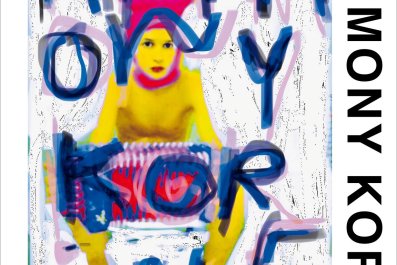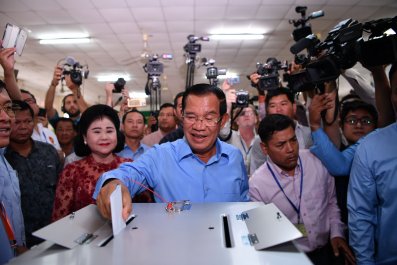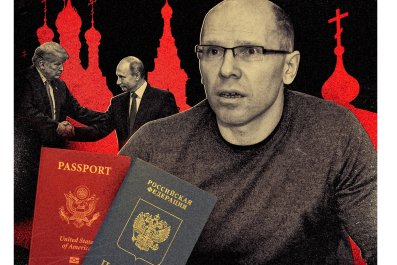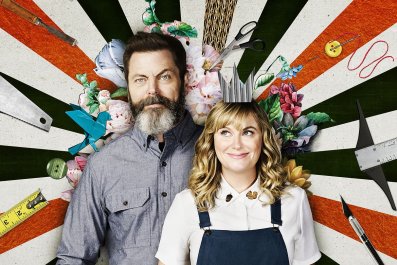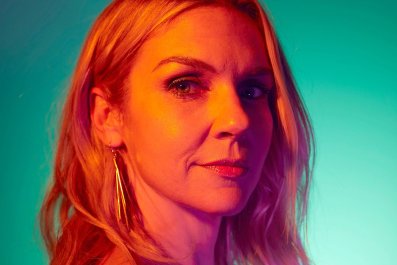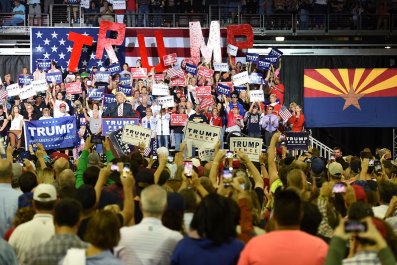Five years ago, Patrisse Khan-Cullors gave a name to a movement that would go on to spark a national conversation and demand a place on the global stage.
Since then, "Black Lives Matter," a phrase Khan-Cullors, 34, first used as a hashtag in response to the July 2013 acquittal of George Zimmerman in the shooting death of 17-year-old Trayvon Martin, has mobilized countless people in the fight to end racial injustice and violence towards black communities in the United States and around the world.
Khan-Cullors' path into activism came long before she founded the Black Lives Matter movement with fellow community organizers Alicia Garza and Opal Tometi.
Growing up in Van Nuys, Los Angeles, the activist felt the impact of poverty and policing firsthand and started her journey in community organizing. When she was 16, she came out as queer, left home and began to form connections with other young queer women facing the challenges of poverty and being a person of color in the U.S.
In the years since, she has gone on to not only lead the BLM movement but also do sweeping work in criminal justice reform. More recently, she has also become a New York Times bestselling author with her book, When They Call You A Terrorist: A Black Lives Matter Memoir, co-written with journalist Asha Bandele.
As BLM turns five, Newsweek spoke to Khan-Cullors about the movement in the Trump era and the challenges ahead. (This interview has been edited and condensed for clarity.)
The fatal shooting of Trayvon Martin in 2012 was a pivotal moment in your life and for the civil rights movement. Why do you think that was the turning point that sparked this now-international movement calling for an end to systemic violence against black people?
I think it's because we're a generation that has been forgotten and neglected. We're a generation that didn't have the same type of mentoring or training that the generation above us had. We're the first generation of families and siblings being hauled off to prison in the thousands and the millions and we're seeing not just poverty in our communities, but we're seeing everyday occupation by police in our communities. It's created an environment where people are sick and tired, and they're ready and willing to fight for their lives.
After George Zimmerman was acquitted in 2013, you wrote the hashtag #BlackLivesMatter on a Facebook post written by co-founder Alicia Garza. Did you ever think that phrase would turn into this massive movement?
No and yes. We started Black Lives Matter because we saw a need and we saw that there was a serious gap in our dialogue, in our infrastructure, around black people. And so, we inserted this conversation and really forced people in our movement and outside of our movement to reckon with anti-black racism and I think we succeeded.
And five years, what has the BLM movement achieved?
On the cultural front, we've changed our entire cultural understanding of blackness and anti-blackness. We've created a new lane for people to fight in. We've created an avenue to talk about gendered violence against black women. We've created an avenue to talk about black trans women and the queer community. Across the country and across the world, we've created a successful global network, with strong chapters that are leading the fight in ending police violence. We've seen groups across the country take on legislation and policy through their local governments, through their local police departments, from D.C. to Chicago to Los Angeles. And we've been on the frontlines of supporting families who never received support before and created an environment for victims of police violence to have a voice.
There have also been criticisms of the movement, which you reflect in your memoir, with the title When They Call You A Terrorist… How do you feel hearing those criticisms, when people try to brand it as a terrorist movement?
It's disturbing, it's unfortunate, it's unacceptable. It's shameful–and it's typical. We're part of a legacy of freedom fighters and part of the legacy is also being undermined by your government.
What do you think the aim is when the government tries to use that language?
It's to undermine and it's to put fear in people. It's for folks to try to steer people away from our movement.
Let's talk about Donald Trump. What effect would you say his presidency has had on the movement and the discourse around civil rights in the U.S. right now?
A grave impact. This is a person who has no compassion for the most marginalized communities. It's also created a new lane for us to fight. This resistance towards Trump is a resistance towards the larger U.S. government that has continued to undermine communities.
When you say that it has created a new lane for BLM to fight in, what exactly does that mean?
It means that we are building across race, across gender, across class right now. We are working with groups across sectors. This is a moment where all of our movements should be joining together to fight up against really one of the greatest threats to American democracy.
What kind of impact do you think Trump's presidency is going to have in the long term?
If we think about the Reagan administration and the effect it's having now on people with mental illness--his administration defunded facilities for people with mental illness and never recreated where they would go. Now we're seeing that our prisons and our jails are actually taking our communities. The most vulnerable people end up prisoners in jail instead of in a treatment facility. I think this administration is going to impact immigration policy. It's also going to alter the state of employment or lack of employment, the policies around women's bodies and trans people. Remember our president isn't just a president; they create a whole entire government and an environment that impacts us for generations to come.
You mentioned immigration. What do you make of the family separations?
It's all part of criminalizing undocumented people. We don't believe keeping families together inside of modern-day internment camps is the answer. We believe that families deserve to be free. People that are trying to come into this country because they are seeking asylum deserve to receive that and at the end of the day, we are in solidarity with our communities, with organizations that are calling to abolish ICE.
Do you have any regrets about opposing Hillary Clinton's 2016 presidential campaign?
Black Lives Matter was opposed to a Democratic Party bought off by corporations and invested in the harm against black people. We are so impressed with the many elected officials and current candidates who are not letting corporate greed dictate their positions.
What about the amount of attention—and the public reaction—campaigns like the March For Our Lives campaign received compared with those organized by BLM? Some have argued that there is a racial divide in the coverage.
I've said this several times, but black people never get to be victims. I'm so glad that the young people from March For Our Lives were celebrated and supported. It was also incredibly painful to not be given that same amount of support when we started Black Lives Matter.
Where will BLM be five years from now?
In five years, I think Black Lives Matter will be a formidable institution inside the U.S. but also outside of the U.S. We're expanding the organization in Canada and developing a network inside the United Kingdom. And we are really supporting some of the most vulnerable communities that our country has seen, and we will continue to be on the frontlines for those communities. I think in five years, we'll have launched a multinational campaign, one of which will be to adequately support black folks with mental illness so that they don't end up being vulnerable and killed by law enforcement. We're looking at mass criminalization and challenging the war on drugs and really challenging the ways in which there has been a deep investment into policing and criminalization.
This story has been updated to reflect the version that will appear in Newsweek magazine.


